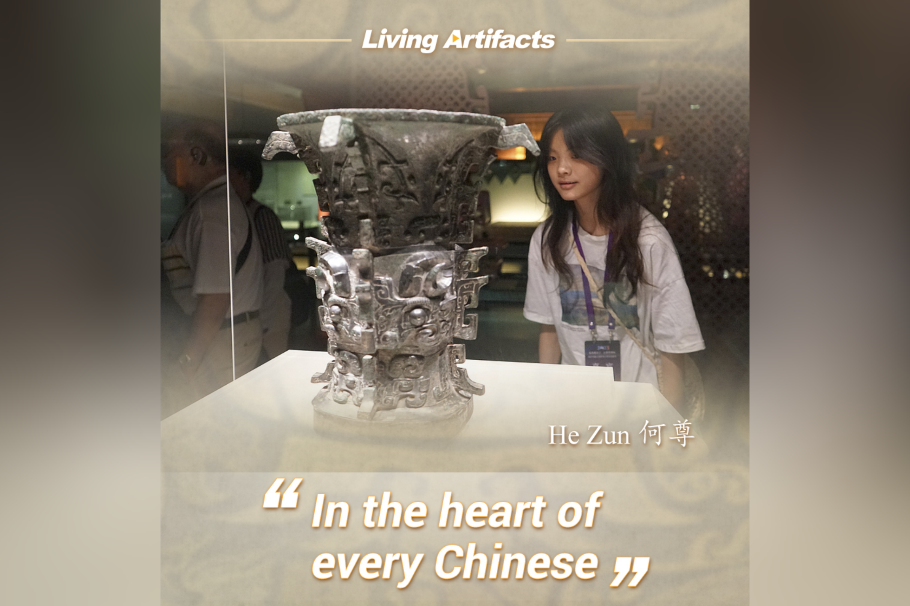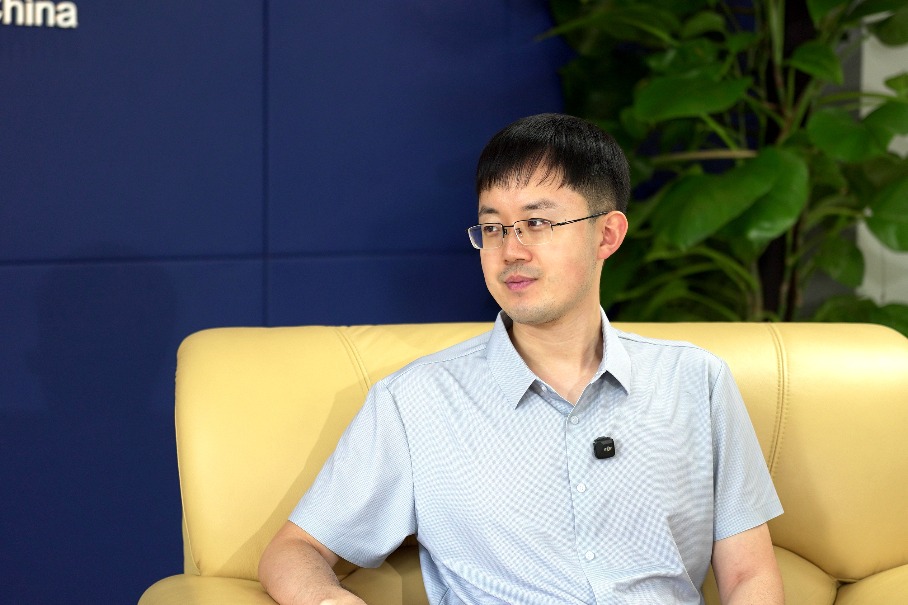Teaching unity through diversity
With roots in Jamaica and a classroom in Beijing, one professor uses music and storytelling to connect students across cultures.


It was the end of the academic year — a time of closure and new beginnings for many of my students. At our send-off party for international graduates at China Agricultural University (CAU), the reggae band One Drop had just launched into Bob Marley's iconic One Love, an anthem of peace, unity, and universal love.
One of my students, Liu Siyan, later told me she had arrived at the event still preoccupied with unfinished schoolwork. But when the entire hall joined in singing, "Let's get together and feel all right", she felt something shift.
"That moment reminded me that multicultural education isn't only about learning facts or history, but about feeling connected through shared human experiences," Liu reflected.
As an assistant teaching professor for a dual degree program between the University of Colorado, Denver (UCD) and International College Beijing (ICB), based at CAU, I teach a communication and diversity course that explores the complexities of communication and the challenges of embracing difference.
Through this course, I aim to introduce my students to diverse cultural expressions that help foster a greater sense of unity. My own journey as a teacher and scholar has been deeply rooted in these themes.
Ten years ago, I came to China from Jamaica to pursue a doctorate in communication studies. Jamaica is a place defined by its fusion of cultures — indigenous, African, Indian, European, and Chinese. My great-grandfathers were part of the Chinese migration wave in the 19th century from Guangdong. This blend of cultural influences shapes the way I view communication and diversity.
Among the courses I teach is one on Caribbean music — including reggae and dancehall — that examines the cultural amalgamation that led to the global rise of the genre.
We focus on figures like Bob Marley, who helped make the region a cultural icon. Reggae was even inscribed on UNESCO's list of intangible cultural heritage of humanity in 2018, along with cultural treasures from China, such as seal engraving and silk craftsmanship.
In today's global order, it is increasingly imperative for university curricula to promote multiculturalism and prepare students for active engagement in both domestic and international affairs.
My summer music class on Caribbean music was designed to open a window into the region's culture, history, and identity.
Through this course, students were taken on a journey across lands deeply influenced by colonialism, with island nations once governed by Britain, Spain, Portugal, France, and the Netherlands.
Our discussions explored how modern history has shaped contemporary understanding of nation-states while fostering greater cross-cultural awareness surrounding issues like race, ethnicity, nationality, gender, age, and ability.
By examining these dimensions of difference, the diversity course seeks to identify common ground in our collective human experience and encourage students to reflect on how they, as individuals, can contribute to building a shared future for all mankind.
Reggae has been a powerful force for expressing resilience and hope, transforming calamity into poetry. I believe my students came to truly appreciate this aspect of the music and the culture.
In June, we were honored to invite Liu Rui, a Chinese musician and enthusiastic reggae performer, also known as Stinging Ray, as a guest lecturer for one of our classes.
Liu adds a unique cultural dimension to reggae, rapping in Chinese over the genre's signature staccato beats. His songs and albums have earned him recognition as a celebrated performer, songwriter, and music entrepreneur in China, Europe, and Japan.
Liu believes that the meaning of life lies in creation, and he wants to tell stories through song, sharing his own China story through a musical tradition that originated in Jamaica.
In the spirit of multiculturalism, China has become a leader in South-South cooperation, with a strong emphasis on educational and people-to-people exchanges.
I am grateful for the opportunities China has given me and I aim to create similar opportunities for my students.
Beyond the classroom
Last month, as part of our class activities, I took them to the Caribbean Experience 2025 event, organized by the Caucus of Caribbean Embassies and the Commercial Office of Haiti, celebrating the region's cuisine and culture.
Participants were given a mock boarding pass for a flight of the imagination, with the departure gate marked "Paradise", capturing the vibrant, welcoming spirit of the Caribbean.
One student, Han Wenyu, described the event as "setting sail on a journey "of discovery. That journey also brought opportunities to connect with fellow students from diverse backgrounds, including Tanzania and Thailand.
"This class, built on theoretical knowledge, has brought change to my everyday life," Han said.
He Siyang, a student who will begin her studies at UCD this fall, said the class and program had made her "more open-minded, confident, and appreciative" of the diversity around her.
"I've been able to pursue dreams I never had the chance to explore before — communicating with people from all over the world, broadening my horizons, and gaining insight into different ways of life," she said.
As the international reggae band One Drop, featuring Johnson Lufungulo and Hopkins Sichilenge from Zambia, and Parat Alim from China's Xinjiang Uygur autonomous region, performed for our students, the whole room sang along to Bob Marley's soaring lyrics.
In that moment, we could feel a sense of unity as Marley sang, "One love. One heart."
Written by Victoria Cann, PhD in communication studies, an assistant teaching professor for a dual degree program between the University of Colorado, Denver and International College Beijing, based at China Agricultural University. She is currently pursuing a doctorate in education at the University of North Georgia. Her research interests include China-Caribbean relations, intercultural communication, and race and identity studies.
Today's Top News
- Xi's letter uplifts nation's young people
- Actor hailed for joining CPC at 92
- China issues final ruling of anti-dumping probe into EU brandy imports
- China urges cooperation as US lifts trade restrictions
- China, US confirm details to implement leaders' consensus
- Will artificial intelligence outsmart humankind?






























